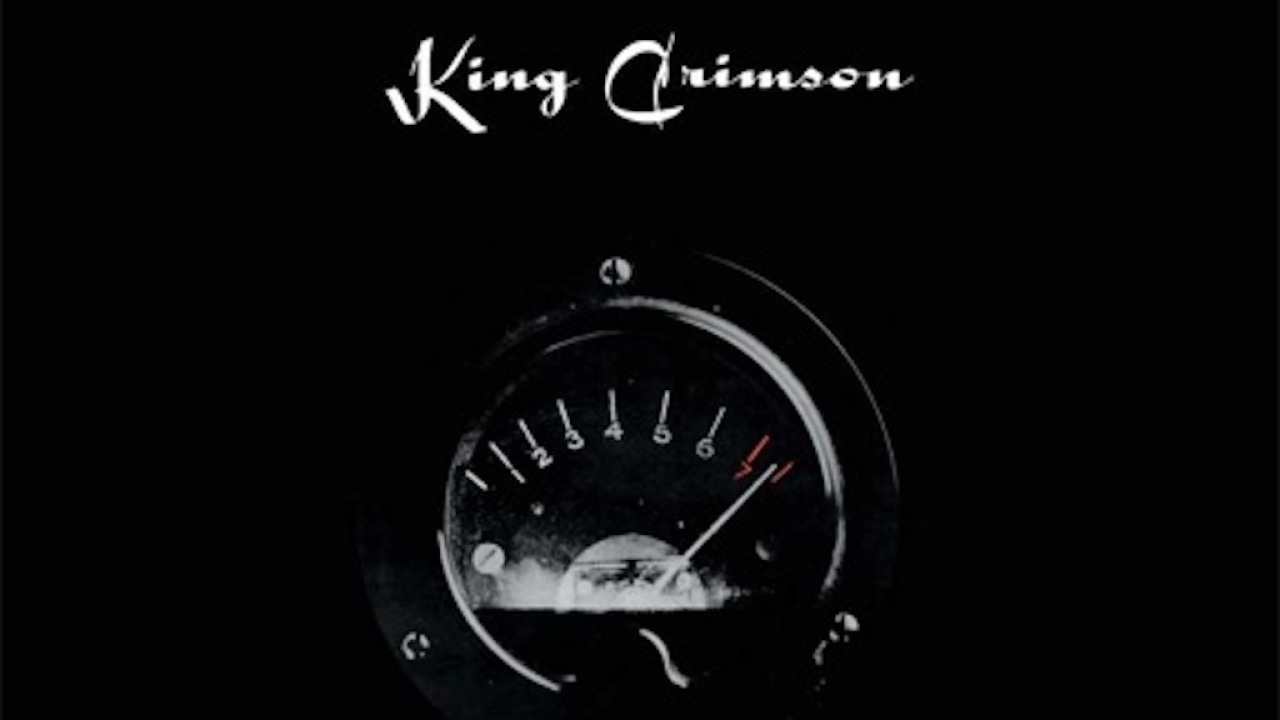There are box sets, and then there are box sets. For anyone daunted by the girth of other recent King Crimson reissues (namely the 13-disc edition of Larks’ Tongues In Aspic), The Road To Red might well prove to be too much altogether. What we have here are 20 – yes, 20 – CDs from their swansong tour of the US and Canada in 1974, painstakingly restored from the original soundboard cassettes and multi-track tapes. Suffice to say that your humble reviewer has never waded through anything quite like it.
It kicks off at the Veterans Memorial Coliseum in Columbus, Ohio, at the back end of April ’74. King Crimson, then enjoying their most stable line-up in their six-year history, were showcasing the just-released Starless And Bible Black. The album, itself built around live recordings from a European trek the previous year, was a mighty conflation of heavy riffs and collective improv, a jazz-rock fusion equal parts Mahavishnu Orchestra and Zeppelin.
Robert Fripp’s guitar may be the central element of these ’74 tapes, but it’s also abundantly clear that he’d allowed the band to develop in a looser, far more organic way than before. John Wetton’s bass alternates between a gurgle and a pretty ferocious roar, made all the more powerful by the percussive thrust of Bill Bruford. It was a rhythm section that Fripp famously likened to “a flying brick wall”. At the other end of things, David Cross’ amplified violin adds a touch of classicism and avant-garde texture.
What’s also immediately apparent is that this is Crimson in musical harmony, an innately curious four-piece driven by a keen instinct for the possibilities of freeform rock. As a case in point, Fracture (from Starless And Bible Black) bends and buckles like it’s still a work in progress. By the following night in Pittsburgh, it’s morphed again, thus beginning a cycle that eventually finds a conclusion two months later at Providence, Rhode Island, by which time Fracture had become a thing of truly open-ended wonder. That show was something of a Crimson landmark, later released on 1992 album The Great Deceiver and yielding the instrumental Providence, which would make it onto Red, issued later in ’74.
Several things leap out during the exhaustive journey through The Road To Red. One is the sheer consistency of Crimson’s output. This wasn’t a band prone to bad nights. They close their set on a couple of occasions with Larks’ Tongues In Aspic (Part II) and 21st Century Schizoid Man, and it still sounds as thrilling today as it must have done in Pittsburgh or Fort Worth: music to both quicken the heart and stir the cortex.
Starless also appears to have occupied a special place in Crimson’s psyche, emerging from a relatively tentative early version to the elegiac majesty that prefigured its inclusion on Red. And if certain axe gods are defined by the lightning brilliance of their guitar playing, Fripp’s untrammelled solos on Easy Money, whether they be from Asbury Park or Toronto, confirm his place right up there in the pantheon.
Above all, the intensity of these recordings is something to behold. They may not have enjoyed the same bum-to-seat ratio as fellow UK exports like the Stones or Jethro Tull, but The Road To Red is irrefutable proof that King Crimson were one of the greatest rock bands on the planet – which made it all the more galling when Cross, apparently frustrated at being drowned out by his fellow cohorts, quit after their closing show in New York.
So who does The Road To Red ultimately serve? It goes without saying that by its sheer heft and specific time frame (not to mention the three-figure price tag), this box really is for hardcore fans only. And even for such ardent Crimsonites, how many versions of Lament or Exiles do you really need?
On the other hand, it’s a fascinating, labyrinthine journey through the inner workings of Crimson at their experimental peak, made all the more valuable by the fact that Fripp broke up the band shortly after Red came out in October ’74. Factor in a deluxe booklet, a new stereo mix of Red, courtesy of Fripp and Steven Wilson, plus a remastered version of 1975’s USA (largely culled from the Asbury Park show), and the whole thing couldn’t be more complete.
Enjoy in your own time, but be warned – you’ll need plenty of it.

